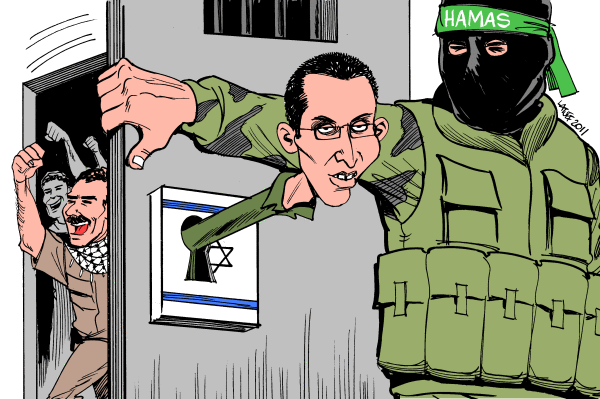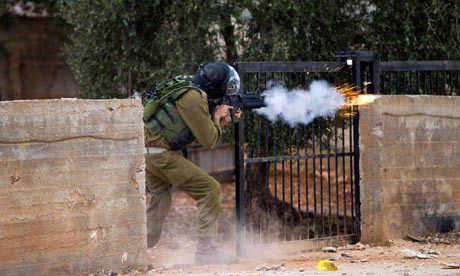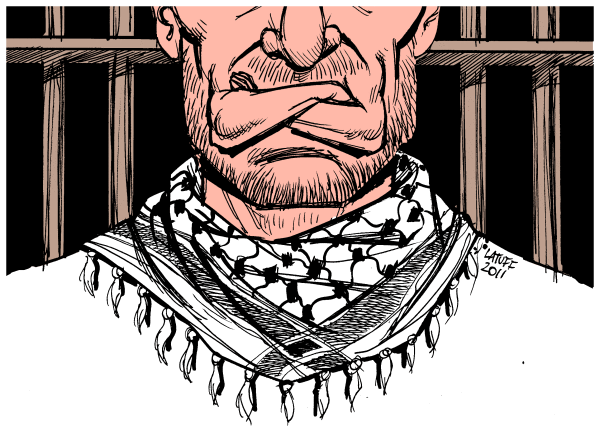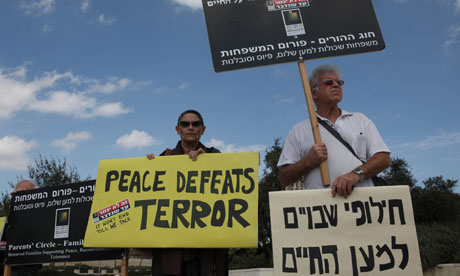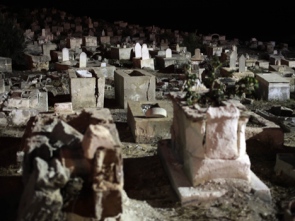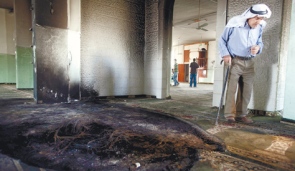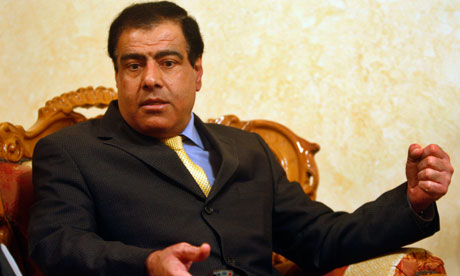BREAKING NEWS! BREAKING NEWS! BREAKING NEWS!
Naval forces board two Gaza-bound ships after they failed to heed orders to turn around or dock in Egypt or Israel; ships being led to port of Ashdod.
The Israel Navy on Friday afternoon intercepted two boats that approached the coast of the Gaza Strip with the intent to violate Israel’s naval blockade of the territory.
After the boats failed to heed calls to turn around or dock in Egypt or Israel, Israel Defense Forces Chief of Staff Benny Gantz ordered naval forces to board the ships. Nobody was injured during the boarding of the ships, a military source said.
“The Israel Navy soldiers operated as planned, and took every precaution necessary to ensure the safety of the activists onboard the vessels as well as themselves,” an IDF statement said.
The boats were carrying supplies and 27 international pro-Palestinian activists.
Activists in Gaza and Ramallah said they lost radio contact with the ships shortly after 1 p.m.
The IDF said that the navy had contacted the Gaza-bound ships and informed them that Gaza is under a maritime security blockade. The IDF told the ships they could turn around or dock in the Egypt or at Ashdod, where the goods they were carrying would be transferred to Gaza after being inspected.
The ships did not heed that call and continued towards Gaza.
IDF forces did not expect to face violent resistance from the activists on the ships.
Israel’s navy has intercepted similar protest ships in the past, towing them to Ashdod and detaining participants. Israel says its naval blockade of Gaza is necessary to prevent weapons from reaching militant groups like Hamas, the Iran-backed group that rules the territory. Critics call the blockade collective punishment of Gaza’s residents.
Israel’s government has said the activists can send supplies into Gaza overland.
In May 2010, nine Turkish pro-Palestinian activists were killed when they resisted an Israeli operation to halt a similar flotilla. Each side blamed the other for the violence.
The incident sparked an international outcry and forced Israel to ease its land blockade on Gaza, which was imposed in 2006 and tightened, with Egyptian cooperation, after Hamas seized control of the territory the following year.
Militants in Gaza have fired thousands of rockets into Israel in the past decade, and now have much of southern Israel in range.
Speaking after prayers at a Gaza City mosque, Ismail Haniyeh, the Hamas prime minister, addressed the passengers aboard the boats, saying, “Your message has been delivered whether you make it or not.”
“The siege is unjust and must end,” Haniyeh said.
On Thursday, the Obama administration warned U.S.�citizens on the boats that they may face legal action for violating Israeli and American law. The activists include Americans and citizens of eight other countries.
State Department spokeswoman Victoria Nuland said the U.S.�was renewing its warning to Americans “not to involve themselves in this activity.”
The U.S., like Israel and the European Union, considers Hamas a terrorist organization.
EDITOR: Israel vs The Universe!
The speed of events is certainly intensifying, to a point it is almost dizzying. The UN bid by Abbas has started a series of Israeli reactions which are really off the scale, as well as carefully designed to inflame and increase tension in the region, in a buildup to the grande attack on Iran, the Israeli project now sold to the USA and UK, these famous protectors of humanity and democracy.
Ever since 2005, Israel has stoked the anti-Iranian issue, increasing the fire under the west’s bum, and building up to total conflict, which is the only condition Israel feels comfortable with. The readiness of most states in the UN to award Palestine a full status is sending Israel off the horizon, into the blue yonder of nuclear war in the Middle East. This is preferable to facing the simple facts of the Palestine issue, and going along with reality, for a change. This Israel cannot do – not just Mr. Netanyahu, or Mr. Barak, but all the other leaders of Israeli parties and factions.
But what is amazing about this turn of events is not just the Israeli madness, overreaction and aggression, but the fact that they have managed to persuade the main western powers to fight their wars for them, and even thank Israel for being allowed to do so… That the USA and UK are now gearing up to attack a non-nuclear nation, in the interest of a nation with over 300 nuclear weapons, which they are protecting from international agencies and the arm of the law. They will be bombing a country which has not attacked others, in order to protect one which does nothing else but attack other countries and nations. This must be the height of international morality.
They will do so not just for the Israelis, of course, but also in the interest of derailing the Arab Spring, or what is left of it. They are doing just fine – with Egypt under a military Junta, with Libya in the hands of undemocratic militias, and with Syria about to collapse – not bad for one summer… they will be showing who is boss, to avoid confusion in the future.
And after all that, Americans will again wonder, why does no one but Israel love them? They really haven’t got the slightest.
British officials consider contingency options to back up a possible US action as fears mount over Tehran’s capability
Nick Hopkins
Iranian nuclear technicians in protective wear. Photograph: Mehdi Ghasemi/AP
Britain’s armed forces are stepping up their contingency planning for potential military action against Iran amid mounting concern about Tehran’s nuclear enrichment programme, the Guardian has learned.
The Ministry of Defence believes the US may decide to fast-forward plans for targeted missile strikes at some key Iranian facilities. British officials say that if Washington presses ahead it will seek, and receive, UK military help for any mission, despite some deep reservations within the coalition government.
In anticipation of a potential attack, British military planners are examining where best to deploy Royal Navy ships and submarines equipped with Tomahawk cruise missiles over the coming months as part of what would be an air and sea campaign.
They also believe the US would ask permission to launch attacks from Diego Garcia, the British Indian ocean territory, which the Americans have used previously for conflicts in the Middle East.
The Guardian has spoken to a number of Whitehall and defence officials over recent weeks who said Iran was once again becoming the focus of diplomatic concern after the revolution in Libya.
They made clear that Barack Obama, has no wish to embark on a new and provocative military venture before next November’s presidential election.
But they warned the calculations could change because of mounting anxiety over intelligence gathered by western agencies, and the more belligerent posture that Iran appears to have been taking.
Hawks in the US are likely to seize on next week’s report from the International Atomic Energy Agency, which is expected to provide fresh evidence of a possible nuclear weapons programme in Iran.
The Guardian has been told that the IAEA’s bulletin could be “a game changer” which will provide unprecedented details of the research and experiments being undertaken by the regime.
One senior Whitehall official said Iran had proved “surprisingly resilient” in the face of sanctions, and sophisticated attempts by the west to cripple its nuclear enrichment programme had been less successful than first thought.
He said Iran appeared to be “newly aggressive, and we are not quite sure why”, citing three recent assassination plots on foreign soil that the intelligence agencies say were coordinated by elements in Tehran.
In addition to that, officials now believe Iran has restored all the capability it lost in a sophisticated cyber-attack last year.The Stuxnet computer worm, thought to have been engineered by the Americans and Israelis, sabotaged many of the centrifuges the Iranians were using to enrich uranium.
Up to half of Iran’s centrifuges were disabled by Stuxnet or were thought too unreliable to work, but diplomats believe this capability has now been recovered, and the IAEA believes it may even be increasing.
Ministers have also been told that the Iranians have been moving some more efficient centrifuges into the heavily-fortified military base dug beneath a mountain near the city of Qom.
The concern is that the centrifuges, which can be used to enrich uranium for use in weapons, are now so well protected within the site that missile strikes may not be able to reach them. The senior Whitehall source said the Iranians appeared to be shielding “material and capability” inside the base.
Another Whitehall official, with knowledge of Britain’s military planning, said that within the next 12 months Iran may have hidden all the material it needs to continue a covert weapons programme inside fortified bunkers. He said this had necessitated the UK’s planning being taken to a new level.
“Beyond [12 months], we couldn’t be sure our missiles could reach them,” the source said. “So the window is closing, and the UK needs to do some sensible forward planning. The US could do this on their own but they won’t.
“So we need to anticipate being asked to contribute. We had thought this would wait until after the US election next year, but now we are not so sure.
“President Obama has a big decision to make in the coming months because he won’t want to do anything just before an election.”
Another source added there was “no acceleration towards military action by the US, but that could change”. Next spring could be a key decision-making period, the source said. The MoD has a specific team considering the military options against Iran.
The Guardian has been told that planners expect any campaign to be predominantly waged from the air, with some naval involvement, using missiles such as the Tomahawks, which have a range of 800 miles (1,287 km). There are no plans for a ground invasion, but “a small number of special forces” may be needed on the ground, too.
The RAF could also provide air-to-air refuelling and some surveillance capability, should they be required. British officials say any assistance would be cosmetic: the US could act on its own but would prefer not to.
An MoD spokesman said: “The British government believes that a dual track strategy of pressure and engagement is the best approach to address the threat from Iran’s nuclear programme and avoid regional conflict. We want a negotiated solution – but all options should be kept on the table.”
The MoD says there are no hard and fast blueprints for conflict but insiders concede that preparations there and at the Foreign Office have been under way for some time.
One official said: “I think that it is fair to say that the MoD is constantly making plans for all manner of international situations. Some areas are of more concern than others. “It is not beyond the realms of possibility that people at the MoD are thinking about what we might do should something happen on Iran. It is quite likely that there will be people in the building who have thought about what we would do if commanders came to us and asked us if we could support the US. The context for that is straightforward contingency planning.”
Washington has been warned by Israel against leaving any military action until it is too late.
Western intelligence agencies say Israel will demand that the US act if it believes its own military cannot launch successful attacks to stall Iran’s nuclear programme. A source said the “Israelis want to believe that they can take this stuff out”, and will continue to agitate for military action if Iran continues to play hide and seek.
It is estimated that Iran, which has consistently said it is interested only in developing a civilian nuclear energy programme, already has enough enriched uranium for between two and four nuclear weapons.
Experts believe it could be another two years before Tehran has a ballistic missile delivery system.
British officials admit to being perplexed by what they regard as Iran’s new aggressiveness, saying that they have been shown convincing evidence that Iran was behind the murder of a Saudi diplomat in Karachi in May, as well as the audacious plot to assassinate the Saudi ambassador in Washington, which was uncovered last month.
“There is a clear dotted line from Tehran to the plot in Washington,” said one.
Earlier this year, the IAEA reported that it had evidence Tehran had conducted work on a highly sophisticated nuclear triggering technology that could only be used for setting off a nuclear device.
It also said it was “increasingly concerned about the possible existence in Iran of past or current undisclosed nuclear-related activities involving military-related organisations, including activities related to the development of a nuclear payload for a missile.”
Last year, the UN security council imposed a fourth round of sanctions on Iran to try to deter Tehran from pursuing any nuclear ambitions.
At the weekend, the New York Times reported that the US was looking to build up its military presence in the region, with one eye on Iran.
According to the paper, the US is considering sending more naval warships to the area, and is seeking to expand military ties with the six countries in the Gulf Co-operation Council: Saudi Arabia, Kuwait, Bahrain, Qatar, the United Arab Emirates and Oman.
If Israel had a sober and responsible, peace-seeking leadership, it would welcome the PA’s membership in UNESCO and even its upgraded status in the United Nations.
A week after Avigdor Lieberman declared Palestinian Authority President Mahmoud Abbas an “obstacle to peace,” it turns out the foreign minister is not alone in the campaign to eliminate the Palestinian interlocutor. Shortly after Israel signed the deal to free soldier Gilad Shalit and revealed the PA leadership to be an empty vessel, the forum of eight senior ministers decided on Tuesday to embark on a campaign to punish the PA leadership.
The government took advantage of the PA’s acceptance as a full member of UNESCO – the United Nations cultural organization – as well as its efforts to become a member of other UN agencies, to declare a retaliatory action that will further undermine Abbas’ position. The forum decided to move ahead with the construction of 2,000 housing units in the settlements and in East Jerusalem, and to withhold more than NIS 300 million in taxes that Israel has collected for the PA, money intended to pay the salaries of PA employees ahead of the Muslim feast of Id al-Adha. The forum also decided to begin the process of revoking senior PA officials’ VIP documentation.
The UN envoy to the region, Robert Serry, told Haaretz this week that the perpetuation of the status quo will lead to the dismantling of the PA and to “throwing the keys back to Israel.” This gloomy prediction, which has the army very concerned, doesn’t worry the government. On the contrary, the eight senior ministers’ decision shows that Prime Minister Benjamin Netanyahu is following the path of Lieberman, who is calling for the severing of ties with the PA.
The political elimination of Abbas and his partners will lift international pressure on Netanyahu to freeze construction in the settlements, and will release him from the need to begin negotiations based on the 1967 borders. The takeover of the West Bank by terror groups – and the process of turning it into a clone of the Gaza Strip – will allow the government to occupy the territories again and do whatever it wants there. Such a development will amplify the influence of Iran and radical Muslim organizations, and will magnify the threat to Israel’s security.
If Israel had a sober and responsible, peace-seeking leadership, it would welcome the PA’s membership in UNESCO and even its upgraded status in the United Nations. Unfortunately, and distressingly, Israel is being led by a right-wing, myopic government.
Britain must resist US pressure for military action. Even if Iran had nuclear weapons, engagement is the only course to take
Richard Norton-Taylor
Iran’s president, Mahmoud Ahmadinejad, visits a nuclear enrichment facility south of Tehran. Photograph: HO/Reuters/Corbis
“Would a British prime minister ever refuse a plea from a US president to join America in a controversial military operation?” This was the response, rhetorical and unanswerable as far as they were concerned, by Whitehall mandarins whenever they were asked why Tony Blair agreed to invade Iraq. It was not a matter of whether the invasion was wrong or right; it was that the occupier of 10 Downing Street would simply not turn down such a request from the White House.
For the US, Britain could offer not only political and “moral” support but a juicy physical asset – Diego Garcia, the base conveniently placed for American bombers, on the British Indian Ocean Territory.
This is what so worries Whitehall, and Britain’s top brass in particular – a growing fear that Barack Obama will find it difficult to oppose increasing pressure for military action against Iran’s nuclear facilities within the next 12 months. British military commanders may be gung-ho, perennially optimistic and eager to please their political masters. They are also pragmatic, fully aware of the potential failure as well as the catastrophic consequences of such military action. And it would be hard for anyone to defend the legality of such pre-emptive strikes.
Amid such death and destruction what would be the end game, and the battles on the way? US and British military commanders have for years warned of the disasters that would follow missile strikes on Iran.
Iran’s forces may not be up to much but, with the help of Hamas and Hezbollah, they could wreak havoc. British and US troops in Afghanistan would be exposed to even greater danger than they are now – their bases in the Gulf, notably in Qatar and Bahrain, would be easy targets. The Strait of Hormuz, the entrance to the Gulf, the canal through which more than 50% of the world’s oil is shipped, would be closed. What would arise from the ashes?
Some may say that is a price worth paying to prevent Iran from acquiring nuclear weapons. The suggestion is that there is a “window” now that would enable Israel on its own to strike Iran’s nuclear sites. Next year, the “window” would be left open to the US (and the UK) before Iran’s nuclear weapons reached the point of no return.
Such reasoning, if this is what it can be called, is that of the dangerous fool. How crushed and devastated would Iran have to be before it could no longer restart a nuclear programme, even one just involving fissile material as a weapon for terrorists?
Israel is fast developing its arsenal, giving it a nuclear “triad” – weapons that could be delivered by land and air, and by submarines.
That’s fine and understandable because Israel is not Iran – unstable, unpredictable, under a president, Mahmoud Ahmadinejad, who wants to create havoc across the Middle East. So runs the argument.
Why attack, or even threaten to attack, a country whose leaders are increasingly worried, more worried, about the state of the economy and internal dissent than any perceived threat from Israel? Iran is a far more sophisticated and divided society than the picture generally painted in the west.
An attack on Iran would halt and reverse moves to reform. The Arab spring would become an Arab winter with disastrous consequences for US and European interests as well as Arab societies, including Saudi Arabia. The alternatives are many – to continue to apply economic sanctions, a policy of carrot and stick, but with much more emphasis on the carrot. Embraces are far more difficult to withstand than attacks.
Engagement with Iran is essential even if it continues to appear determined to possess nuclear weapons, or the ability to produce them – “the art, but not the article”. It is status, after all, rather than military practicality, that led Blair to keep the Trident nuclear missile system for Britain, according to his autobiography.
If the pressure continues to mount, we can only hope there are enough influential voices left in Whitehall to tell the prime minister, and in Washington to tell the president: “No!”
Continue reading November 4, 2011



